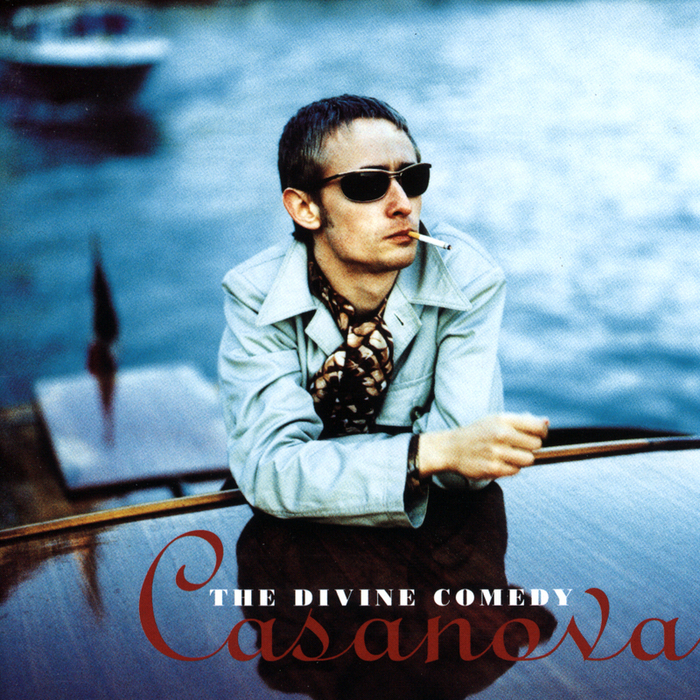Released during a time when a generation were generally in thrall to the simple pleasures of Britpop, were pilled-up moon-eyed dancers, or still moping around listening to American angst merchants, The Divine Comedy’s Casanova was an album that stuck out like a sore thumb with its bright and breezy charms. Sophisticated without being self important, The Divine Comedy’s Neil Hannon was on a one man crusade to prove that it was possible to deliver pop music with a knowing wink, without having to revert to vulgarity.
Possessing a way with a melody light years ahead of his contemporaries, Hannon’s ability to pen a brilliantly accessible tune pretty reached an apex with Casanova, as it was packed full of smart pop songs that would have clogged up the upper reaches of the 90s singles charts for months on end if there was any justice in the world. Hannon’s charming arrangements and experience-soaked croon was a world away from the rip-off riffage and mock-working class bellowing of Britpop, which goes some way to explaining why Divine Comedy were considered an act of niche appeal for so long. As brilliant as Hannon’s songs were, Divine Comedy were committed to the thankless task of swimming against the tide of popularity at the time, so Casanova struggled to reach the audience numbers it deserved to.
So, 20 years after its release, does Casanova still stand up, or have the two decades weighed heavily on its shoulders?
Actually, as it turns out, it still stands up pretty well, especially when compared to the majority of albums released during the era. It remains a collection of arch pop tunes which are playful, without being lightweight, and it’s different enough to anything else going on in the mid-90s for it not to be forever tied to that decade. While not entirely ageless, tunes like “Becoming More Like Alfie”, “Something for the Weekend” and “Songs of Love” have at least aged well, and the heart-swelling “The Frog Princess” is a wonderfully resigned ballad which deserves to be hailed as a modest-masterpiece.
If Casanova has a flaw, it’s that it doesn’t really know how to end. “Theme from Casanova” would have been a charmingly tongue in cheek closing track, however it is followed by the richly orchestrated “The Dogs & the Horses”, a fine song which frustratingly just doesn’t fit in with the sex-based themes of the rest of the album. Perhaps the answer would have been to omit it from the album entirely, but it’s far too fine a piece of music to be relegated to b-side status, or even tucked away as an example of that most teeth gnashing aspect of 90s CD culture – the hidden track.
Casanova is an album that requires a little bit of time lavished on it before it reveals its charms, however when it does, it declares itself one of the finest albums of the 90s. Yes it has its flaws, but that goes for a vast amount of the albums released during that decade, and the good aspects far outweighs the bad. Casanova is by turns playful, charming, smart and on the whole considerably less knuckle-dragging than much of what my generation were subjecting themselves to at that time, and it’s appeal has endured when so many other albums released at the time have long since lost their lustre.













No Comment